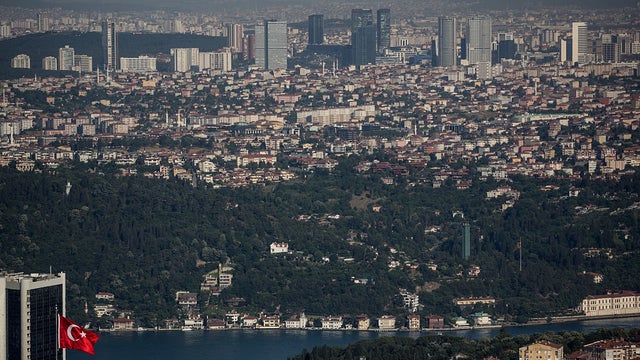
2016 has proven to be a challenging year for Turkey economically. With political and economic uncertainty fueled by geopolitical and domestic developments, several U.S. credit rating agencies have downgraded Turkey’s credit rating over concerns about economic stability.
Despite all the noise around the change in credit rating, Turkey’s economy still has much to offer. Demographically, Turkey has a young population with a growing and strong labor force, especially in the manufacturing base for exports.
The spirit of the Turkish people remains strong. Following the coup attempt this summer, Turks went back to work within a few days. The people of Turkey remain resilient and provide a strong backbone for the country’s economy despite recent challenges.
The government in Turkey has taken multiple measures to help mitigate fears. A week after the coup, President Erdogan, in an address to parliament, assured the world that authorities would maintain fiscally disciplined and encouraged outsiders to continue investing in his country, Reuters reported. Investors seem to be taking the president at his word. The Financial Times reported that investors are betting on Turkey’s long-term growth.
In the private sector, business leaders have echoed the president’s message and encouraged investment in Turkey. At the Turkey Investment Conference in New York, Ekim Alptekin, who heads the Turkey-U.S. Business Council (TAIK), spoke to the strong U.S.-Turkey business relations and stated that current volumes of cooperation need to be increased. Hurriyet Daily News reported that he said, “Turkish-American economic relations are not at the level that they should be. It’s not nearly enough,” as he further stressed Turkey’s desire to expand these relations.
There are plenty of trade and investment opportunities between the United States and Turkey and despite what the headlines may say, foreign direct investment in Turkey remains strong.
There are 1400 U.S. companies doing business in Turkey with about 45,000 foreign companies in total that are based in Turkey according to Jennifer Miel, Executive Director of U.S.-Turkey Business Council. There has been an increase in exports between Turkey and the U.S.; with a pro-business Trump administration taking the office in January, good business deals lay ahead between our two countries in 2017 and moving forward.
Turkey’s strategic geographic location between the Middle East, Europe and Asia make it an obvious hub in the energy and trade corridors. Due to these geo-strategic links, large companies continue to see Turkey as a strong manufacturing base and a base for European operations. U.S. companies see opportunities in Turkey in various sectors such as energy, manufacturing, agriculture, healthcare and technology.
The transportation and infrastructure sectors are also seeing major developments with Istanbul opening the world’s largest airport in 2018 which will help make Turkey a hub for trade, tourism and a destination to do business. 70% of Turkey’s automotive production is for export, housing manufacturing plants for Ford, Fiat and Toyota among other automotive companies. With all these opportunities, Turkey is still expected to grow economically at a rate of 3% in 2017 despite recent turbulent winds.
Turkey’s long-term and short-term economic success will also depend on various reforms that are currently under consideration in Turkey. Reforms on issues such as part-time labor and auto-enrollment for pension plans will help increase domestic savings and strengthen the banking system. Also, reforms in the educational system for its younger generation would be a key to Turkey’s long-term economic success and provide an important regional and global advantage over human capital.
Turkey’s economy has remained strong despite’s Europe’s recent economic collapse and the future remains bright for Turkey’s economy in 2017. The next year will prove to be a strong economic year for Turkey as Turkey is open for business more than ever before.